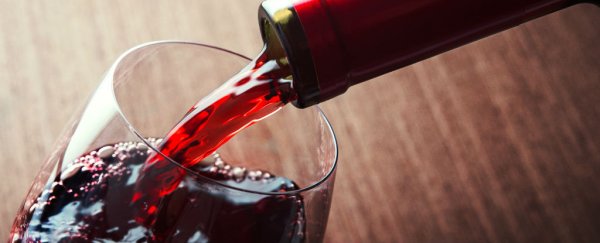Scientists have found that resveratrol, an antioxidant found in red wine, peanuts and some berries, isn't just good for our hearts - it can also help us fend off memory loss as we age.
The results suggest that the compound may even be able to help patients with severe neurodegeneration, such those with Alzheimer's disease.
When given to middle-aged rats, resveratrol doubled the speed of neurogenesis - the growth and development of neurons, which naturally slows down as we age. These rats also had improved mood, better memory and could learn more effectively than rats of the same age that were given a placebo.
"The results of the study were striking," said Ashok K. Shetty, the study leader, in a press release.
"They indicated that for the control rats who did not receive resveratrol, spatial learning ability was largely maintained but ability to make new spatial memories significantly declined between 22 and 25 months. By contrast, both spatial learning and memory improved in the resveratrol-treated rats."
Lab rats can live to around four years old, but by 25 months, their memory has usually started to decline, along with their learning ability - something that also happens to humans after middle-age.
Knowing that resveratrol, which is found in the skin of red grapes, has an anti-inflammatory effect on the heart and can help to trigger the growth of new blood vessels, Shetty and his team decided to investigate whether the antioxidant could also benefit the hippocampus - the region of the brain associated with learning, memory and mood.
To test this, they took a group of 21-months-old female rats, and gave eight of them resveratrol injections each day for four weeks, and seven of them a placebo injection for four weeks. They then assessed their ability to form memories and learn, as well as examining how many new neurons were growing and developing.
While the mice that had been treated with resveratrol had improved memory, mood and learning by 25 months, the control group had actually declined. And the antioxidant-treated rats also had improved blood flow and less inflammation in their hippocampus. The results have now been published in Scientific Reports.
"The study provides novel evidence that resveratrol treatment in late middle age can help improve memory and mood function in old age," said Shetty in the release.
Of course, this is a small study on rats, not humans, so it's too early to reach for that second bottle of red wine just yet. But, in the past many of the behaviours we've observed in rodent brains have been very similar in humans, so the results are definitely intriguing.
The next step will be to test whether resveratrol has a similar positive effect on the human hippocampus, and, if so, to work out the best way to deliver the antioxidant. Chances are, it's probably not going to be via wine, but there's no harm in hoping - and we can all feel a little more validated while enjoying a glass (or two) of red in the meantime.
